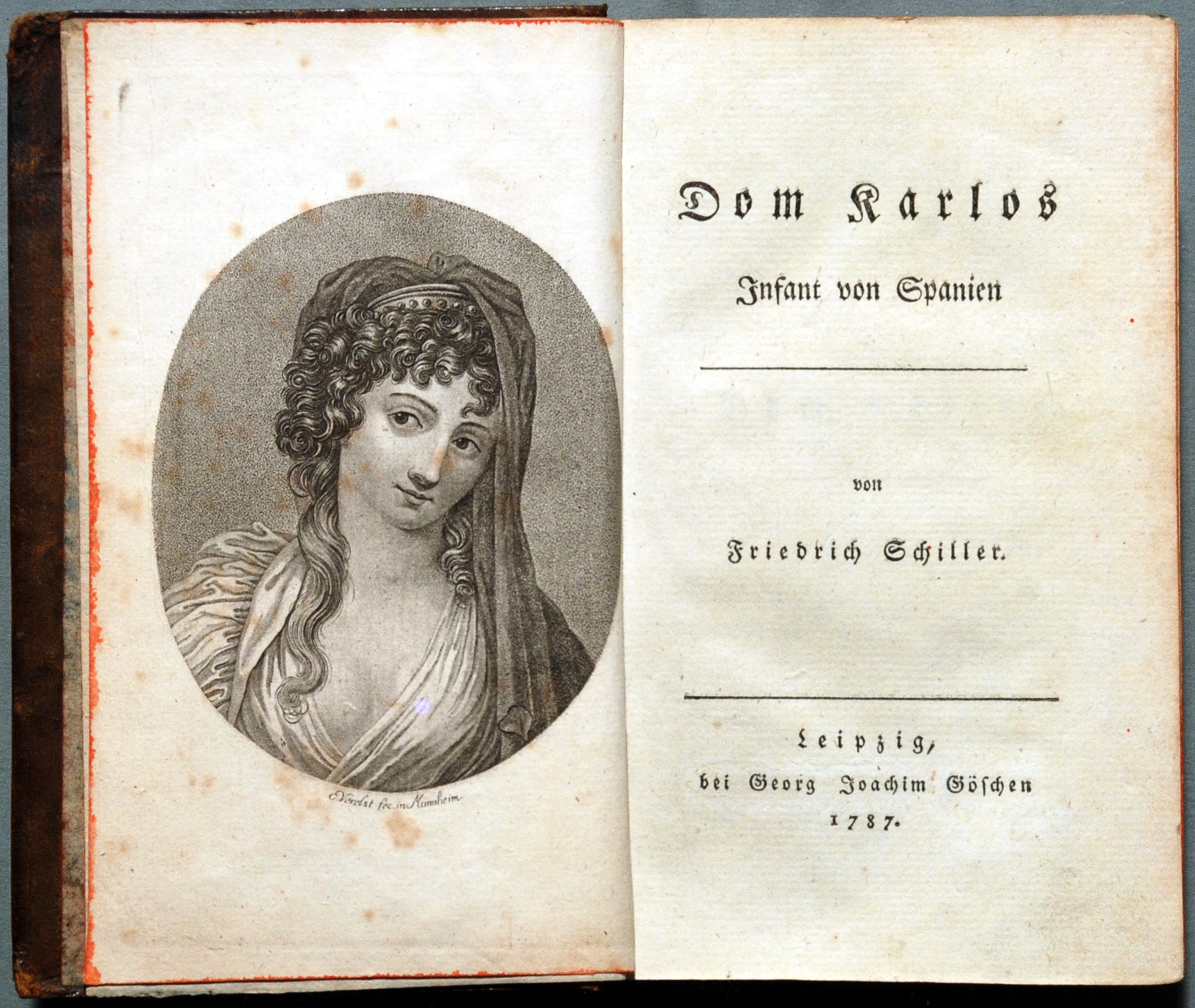
Don Carlos (play)
Don Carlos (German: Don Karlos, Infant von Spanien,[nb 1][1] German pronunciation: [dɔn ˈkaʁlɔs ɪnˈfant fɔn ˈʃpaːni̯ən] ) is a (historical) tragedy in five acts by Friedrich Schiller; it was written between 1783 and 1787 and first produced in Hamburg in 1787.
Don Carlos
Friedrich von Schiller
German
Drama
Spanish Court at Aranjuez
Plot[edit]
The title character is Carlos, Prince of Asturias and the play as a whole is loosely modeled on historical events in the 16th century under the reign of King Philip II of Spain. Don Carlos is a Prince of Spain, given to the Spanish Inquisition by his father (who also wants to marry Carlos' lover) due to his Libertarian creeds. Another great Romantic character is the Marquis of Posa dying for the liberty of the Dutch Republic as well as ruling Catholic Spain during the Reformation and the Counter-Reformation.
Reception[edit]
According to Schiller himself, the two main criticisms of Don Carlos were that it lacked unity and that the actions of the Marquis Posa were implausible. In Briefe über Don Carlos (1788[3]), he himself claimed that two acts is too little time for a gradual development of Philip's trust in Posa. Schiller did defend Posa's actions with arguments from character.[2]
Rudiger Gorner claimed in Standpoint that Kenneth Tynan once criticized Don Carlos as "a Spanish tragedy composed of themes borrowed from Hamlet and Phèdre",[4] though according to The Guardian's Michael Billington, Tynan was actually writing about Schiller's play Mary Stuart (1800) after seeing a 1958 performance of that work at The Old Vic.[5] Sharpe claimed that Schiller's defenses of Posa are unsuccessful because the play is not character-based in the first place, though she also said that Schiller's overall discussion of the play ultimately does "less than justice [...] to the play as a work of art".[2] Gorner argued that the "sheer musicality of Schiller's verse" is shown by such works as Don Carlos, as well as The Robbers (1781) and Intrigue and Love (1784).[4]
Several operas have been composed on the basis of the play: